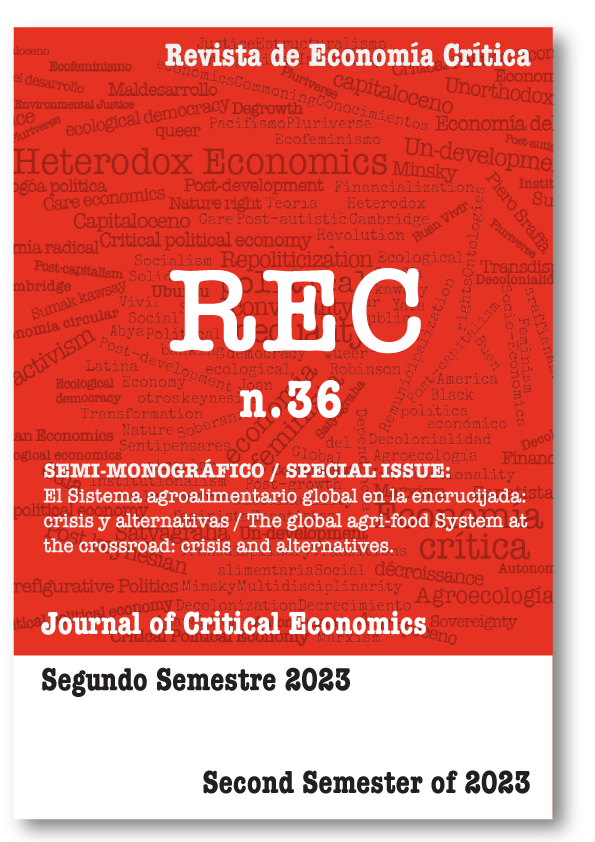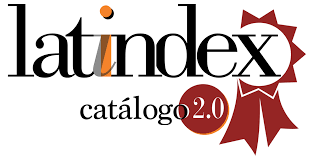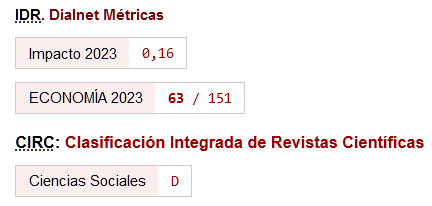Analysis of the evolution of agri-food systems in Western Europe (1986-2020)
ISSSA, a synthetic indicator of sovereignty and sustainability
DOI:
https://doi.org/10.46661/rec.10340Keywords:
agri-food systems, food sovereignity, food security, western union, Synthetic indexAbstract
Over the last 30 years, agri-food systems have experienced a set of transformations that are not only relevant in themselves, but also highlight new challenges, new debates, new research approaches and, therefore, new methodologies that allow us to approach the old and new realities. In order to analyze these transformations from new perspectives, in previous works an alternative system of evaluation of the changes experienced by agri-food systems was developed based on the identification of the evaluable principles that define the concept of food sovereignty. This article takes another step in this direction. For the synthetic presentation of the proposed multifactorial analysis, the ISSSA has been constructed: Index of Sustainability and Sovereignty of Agri-food Systems. This indicator is calculated for 7 countries representative of three large geographical areas that would make up Western Europe, with Spain and Italy for Mediterranean Europe, Germany and the United Kingdom, for Central-Atlantic Europe, with France between these first two regions, and Denmark and Sweden for Scandinavia, with the aim of analyzing the transformations experienced by their agri-food systems between 1986 and 2020. The analytical exercise carried out allows us to confirm that there has been a progressive loss of sovereignty and sustainability in all the regions analyzed.
Downloads
References
Collantes, Fernando & Pinilla, Vicente. (2019). ¿Lugares que no importan? La despoblación de la España Rural desde 1900 hasta el presente. Zaragoza: Prensa de la Universidad de Zaragoza.
Cussó-Segura, Xavier; Gamboa, Gonzalo, & Pujol-Andreu, Josep. (2018). El estado nutritivo de la población española. 1860-2010: una aproximación a las diferencias de género y generacionales. Nutrición Hospitalaria, 35(5), 11-18. https://doi.org/10.20960/nh.2079 DOI: https://doi.org/10.20960/nh.2079
European Parliament. (2011). Report of the European Parliament on the farm input supply chain: structure and implications. 2011/2114 (INI), rapporteur José Bové.
Friedmann, Harriet & McMichael, Philip. (2008). Agriculture and the State System: The Rise and Decline of National Agriculture. Sociologia Ruralis, 29(2), 93–117. https://doi.org/10.1111/j.1467-9523.1989.tb00360.x DOI: https://doi.org/10.1111/j.1467-9523.1989.tb00360.x
Fuglie, Keith Owen; King, John; Heisey, Paul & Schimmelpfenning, David. (2012). Rising concentration in agricultural input industries influences new farm technologies. Amber Waves: The economics of food, farming, natural resources, and rural America. https://doi.org/10.22004/ag.econ.142404
Gallopín, Gilberto Carlos. (1997). Indicators and Their Use: Information for Decision-making. Part One-Introduction. En Moldan, B. y Bilharz, S. (eds.): Sustainability Indicators. A Report on the Project on Indicators of Sustainable Development. Chichester, Wiley, SCOPE 58, pp. 13-27.
Giampietro, Mario & Pastore, Gianni. (2000). The amoeba approach: A tool for multidimensional analysis of agricultural system performance. En Köhn, J.; Gowdy, J. & J. Van Der Straaten, J. (eds.). Sustainability in action. Sectorial and regional case studies, Edward Elgar, Cheltenham, UK. https://doi.org/10.4337/9781035351787.00017 DOI: https://doi.org/10.4337/9781035351787.00017
Gomeiro, Tiziano. (2005). Multi-objective integrated representation (MOIR): an innovative tool for framing system analysis. Doctoral dissertation, Universitat Autònoma de Barcelona, Bellaterra, Spain.
González-Esteban, Angel Luis. (2017). Patterns of world wheat trade, 1945-2010: The long hangover from the second food regime. Journal of Agrarian Change, 18(1), 87-111. https://doi.org/10.1111/joac.12219 DOI: https://doi.org/10.1111/joac.12219
Martí Selva, María Luisa & Puertas Medina, Rosa María. (2020). Assessment of sustainability using a synthetic index. Environmental Impact Assessment Review, 84, 1-12. https://doi.org/10.1016/j.eiar.2020.106375 DOI: https://doi.org/10.1016/j.eiar.2020.106375
McMichael, Philip. (2005). Global development and the Corporate Food Regime. Research in Rural Sociology and Development, 11, 265-299. https://doi.org/10.1016/S1057-1922(05)11010-5 DOI: https://doi.org/10.1016/S1057-1922(05)11010-5
Oddy, Derek J.; Atkins, Peter J. & Amilien, Virginie (eds.) (2009). The rise of obesity in Europe. A twentieth century food history. Ashgate Publishing, Aldershot.
Patel, Raj. (2013). The long Green Revolution. The Journal of Peasant Studies, 40, 1-63. https://doi.org/10.1080/03066150.2012.719224 DOI: https://doi.org/10.1080/03066150.2012.719224
Patterson, Lee Ann. (1997). Agricultural policy reform in the European Community: A three-level game analysis. International organization, 51(1), 135-165. https://doi.org/10.1162/002081897550320 DOI: https://doi.org/10.1162/002081897550320
Pechlaner, Gabriela & Otero, Gerardo. (2008). The third food regime: neoliberal globalism and agricultural biotechnology in North America. Sociologia Ruralis, 48(4), 1-21. https://doi.org/10.1111/j.1467-9523.2008.00469.x DOI: https://doi.org/10.1111/j.1467-9523.2008.00469.x
Phillis, Yannis; Kouikoglou, Vassilis & Manousiouthakis, Vasilios. (2010). A review of sustainability assessment models as system of systems. IEEE Systems Journal, 4, 15-25. https://doi.org/10.1109/JSYST.2009.2039734 DOI: https://doi.org/10.1109/JSYST.2009.2039734
Popkin, Barry M. (1993). Nutritional patterns and transitions. Population & Development Review, 19(1), 138–157. https://doi.org/10.2307/2938388 DOI: https://doi.org/10.2307/2938388
Pujol-Andreu, Josep & Cussó-Segura, Xavier. (2014). La transición nutricional en Europa occidental: una nueva aproximación. Historia Social, 80, 133-155.
Reig, Ernest. (2010). Análisis del potencial socioeconómico de municipios rurales con métodos no paramétricos: aplicación al caso de una zona Leader. (Working Paper BBVA).
Rivas, Marc. (2022). Un sistema de evaluación integral para el análisis de los sistemas agroalimentarios: La soberanía alimentaria como punto de partida. Tesis doctoral, Universitat Autònoma de Barcelona, Bellaterra, España.
Rivas, Marc & Cussó, Xavier. (2023). La soberanía alimentaria como indicador de la transformación integral de los sistemas agroalimentarios. Historia Agraria, 90, pp.7-38. DOI:10.26882/histagrar.090e08r DOI: https://doi.org/10.26882/histagrar.090e08r
Roederer-Rynning, Christilla. (2002). Farm conflict in France and the Europeanisation of agricultural policy. West European Politics, 25(3), 105-124. https://doi.org/10.1080/713601616 DOI: https://doi.org/10.1080/713601616
Segrelles Serrano, José Antonio & Vásquez Sánchez, Jaime (coords). (2012). Multifuncionalidad rural y nueva ruralidad: la experiencia europea y la potencialidad de Colombia. Madrid: Ministerio de Agricultura, Alimentación y Medio Ambiente, p. 417.
Segrelles Serrano, José Antonio. (2017). Las ayudas agrarias y sus repercusiones sobre la agricultura familiar en la última reforma de la Política Agraria Común (2014-2020) de la Unión Europea: ¿Cambiar todo para que todo siga igual?. Boletín de la Asociación de Geógrafos Españoles, 74, 161-183. DOI: 10.21138/bage.2449 DOI: https://doi.org/10.21138/bage.2449
Shaw, D.John. (2007). World food security: a history since 1945. New York: Palgrave Macmillan. https://doi.org/10.1057/9780230589780 DOI: https://doi.org/10.1057/9780230589780
Sheingate, Adam D. (2000). Institutions and interest group power: Agricultural policy in the United States, France and Japan. Studies in American Political Development, 14, 184-211. https://doi.org/10.1017/S0898588X00003400 DOI: https://doi.org/10.1017/S0898588X00003400
Tello, Enric; Galán, Elena; Sacristán, Vera; Cunfer, Geoff; Guzmán, Gloria Isabel; González De Molina, Manolo; Krausmann, Fridolin; Gingrich, S.; Padró, Roc, Marco, Inés & Moreno-Delgado, David. (2016). Opening the black box of energy throughputs in farm systems: A decomposition analysis between the energy returns to external inputs, internal biomass reuses and total inputs consumed (the Vallès County, Catalonia, c.1860 and 1999). Ecological Economics, 121, 160-174. https://doi.org/10.1016/j.ecolecon.2015.11.012 DOI: https://doi.org/10.1016/j.ecolecon.2015.11.012
Ten Brink, B.J.E.; Hosper, S.H. & Colin, F. (1991). A quantitative model for description and assessment of ecosystems: The amoeba-approach. Marine Pollution Bulletin, 23, 265-270. https://doi.org/10.1016/0025-326X(91)90685-L DOI: https://doi.org/10.1016/0025-326X(91)90685-L
Tilman, David.;Cassman, Kenneth G.;Matson, Pamela A.; Naylor, Rosamond & Polasky, Stephen. (2002). Agricultural sustainability and intensive production practices. Nature, 418(6898), 671-7. https://doi.org/10.1038/nature01014 DOI: https://doi.org/10.1038/nature01014
Tribunal de Cuentas. (2008). ¿Constituye la condicionalidad una política eficaz? Informe Especial nº 8/2008.
Van Der Ploeg, Jan Douwe. (2010). The food crisis, industrialized farming and the imperial regime. Journal of Agrarian Change, 10(1), 98-106. https://doi.org/10.1111/j.1471-0366.2009.00251.x DOI: https://doi.org/10.1111/j.1471-0366.2009.00251.x
Wise, Timothy A. (2004). The Paradox of Agricultural Subsidies: Measurement Issues, Agricultural Dumping, and Policy Reform. AgEcon Search, Working Paper No. 04-02. https://doi.org/10.22004/ag.econ.15590
Wu, Sisi; Fu, Yelin; Shen, Hai & Liu, Fan. (2018). Using ranked weights and Shannon entropy to modify regional sustainable society index. Sustainable Cities and Society, 41, 443-448. https://doi.org/10.1016/j.scs.2018.05.052 DOI: https://doi.org/10.1016/j.scs.2018.05.052
Downloads
Published
How to Cite
Issue
Section
License
Copyright (c) 2023 Marc Rivas López, Xavier Cussó Segura

This work is licensed under a Creative Commons Attribution 4.0 International License.
This licence allows third parties to share (copy and redistribute the material in any medium or format) and adapt (remix, transform and create from the material for any purpose, including commercial purposes), provided that authorship and first publication in this journal (The Journal, DOI of the work) is acknowledged, a link to the licence is provided, and it is stated whether changes have been made to the work.







